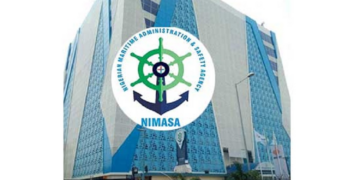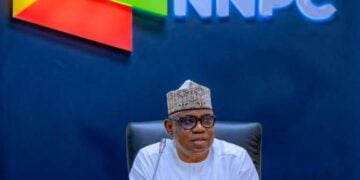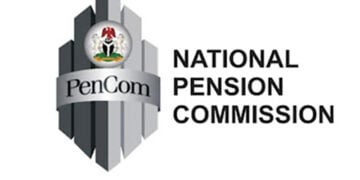French oil and gas group, Bourbon, has denied having bribed Nigerian tax officials to reduce a tax reassessment.
Eight current and former Group executives are appearing before the Marseilles Criminal Court for corruption charges in Nigeria, Equatorial Guinea and Cameroon.
According to the prosecution, $2.7 million was paid in 2012 to Nigerian tax auditors to reduce a tax reassessment from $227 million to $4.1 million.
However, Bourbon claims that negotiations with the Nigerian tax authorities were delegated to their local partner, Intels, a subsidiary of the Orleaninvest group.
Intels had set up two companies in joint venture with Bourbon: Bourbon Interoil Nigeria Limited (BINL) and Bourbon Offshore Interoil Nigeria Service Limited (BOINSL).
At the trial, Gaël Bodénès, then Deputy Chief Operating Officer and now Bourbon’s number 1, expressed his regret that “ his instructions had not been followed”. He stated that he had given no instructions to approve bribe payments.
Former managing director of Bourbon, Christian Lefèvre assured that he was opposed to any form of corruption. His first reaction, he said, was ‘there’s no way Bourbon would be involved in this kind of request.’ However, none of the executives mentioned having given explicit instructions to prevent suspicious payments.
Former chief Financial officer, Laurent Renard also denied any involvement, stressing that he had no power over Intels. Email exchanges between Marc Cherqui, Bourbon’s tax director in Lagos, and other company executives were presented as evidence. These emails suggest corruption in progress.
In his testimony, the director of Bourbon Marine and Logistics, Rodolphe Bouchet, referred to emails concerning a bribe of two million euros. Gaël Bodénès justified his lack of reaction to these emails by saying that he was managing a kidnapping crisis involving Bourbon sailors.
Bourbon’s executives maintain that the company has paid what it owes to the Nigerian tax authorities, without resorting to illegal means. They maintained that, if any funds have been paid out, this is the responsibility of Intels, a group with great local influence.
The court will examine allegations of corruption in Cameroon and Equatorial Guinea over the coming days, with an indictment expected on Tuesday.
Bourbon vigorously defends itself against accusations of corruption, placing the blame on its local partner, Intels. Perhaps the next few days of the trial will shed more light on the practices of the company and its partners in Africa.
P2P: BDC Operators Seek SEC’s Collaboration To Harmonise Digital Currency
The Association of Bureaux De Change Operators of Nigeria (ABCON) has called for Securities and Exchange Commission (SEC’s) guidance and collaboration in harmonising the peer-to-peer (P2P) forex sector in the country.
In an official visit to the new SEC director-general, Dr. Timi Agama, the president of Association of Bureau de Change Operators of Nigeria ( ABCON), Aminu Gwadabe, congratulated the SEC D-G on his appointment by President Bola Ahmed Tinubu and quickly highlighted that SEC regulates the sector that is a threat to the continued existence of BDCs in Nigeria through online virtual transactions platforms which gives access to millions of Nigerians to trade in foreign exchange without trace and accountability.
He also explained that ABCON has invested in requisite technology to ensure the continued existence of the business and preserve the integrity of the sub-sector. He opined that the future of BDC’s business is digital currency.
The national president of ABCON said the meeting with the SEC DG and the present executive board of the SEC was a follow up on the earlier online virtual consultation.
Gwadabe explained that ABCON is the umbrella body for all licensed retail foreign exchange dealers established in 1991 to liaise with regulators, relevant stakeholders and security agencies for a transparent retail end forex market.
Gwadabe said, “As at today, there are over 34 million Nigerians dealing in digital currency and the number is rising by about 9 per cent with a huge market of $9 billion annually. There are thousands of multichannel virtual currency FX platforms and none is indigenous to Nigeria, adding that P2P represents individual to individual transaction.
“To automate the entire foreign exchange retail market, ABCON has partnered with the Commodities Exchange Board, in building the platform knowing that they have sources of foreign exchange. ABCON is willing to work with SEC towards achieving full automation of the retail end of the foreign exchange market in Nigeria.
ABCON’s technical partner Oluwasegun Kosemani, thanked the SEC DG and his intelligently experienced SEC team which had Mr Wale Ajomale for their warm reception and listening to ABCON while making it known to SEC that much resources had been allocated to the research and development of the platform and that ‘we are working on collaborating with every emerging verifiable blocks of the blockchain and cryptocurrency ecosystem in Nigeria like BICCoN, CDIN, SIBAN, DCC, Bitcoin organisations, local peer to peer exchanges and merchants etc.’











